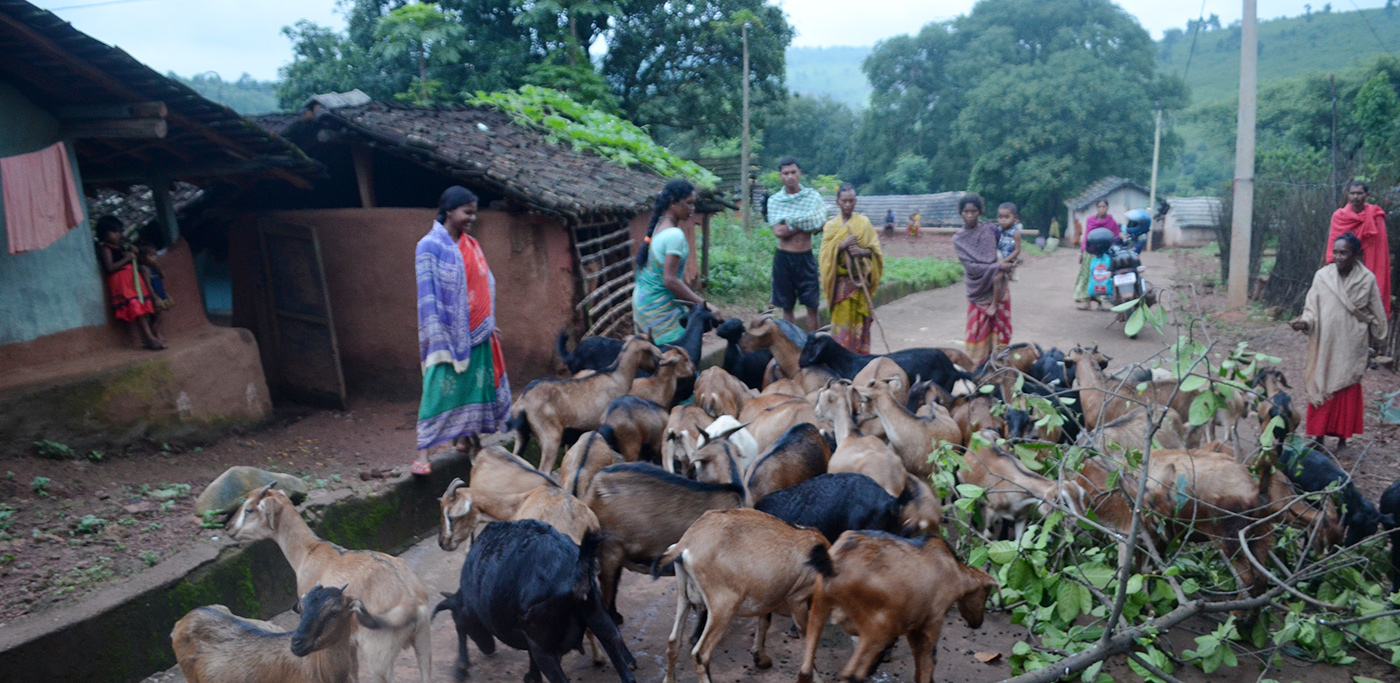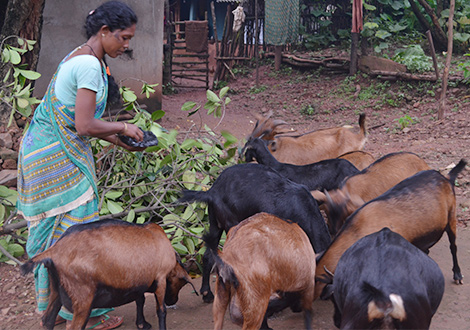Small Ruminants, Big Support
by Dolagobinda Panda
Parbati Karjee was still holding the frail left-hand of Dukhabandhu when he breathed his last in a dark hospital room in Kendujhar town. Dukhabandhu, the man whom she married 19 years back and lived with ever since. The doctors did their best, but could not save him. The only solace, for a numb Parbati, was that she could do her best to treat him well. The hospital bills went up to Rs. 25,000! Way beyond what any Tulodihi villager could afford to spend for medical treatment! Upon her return to her hut, Parbati fed her herd of 25 goats. She had 31 a month ago! She had to sell six for RS 31,400 to pay for the hospitalization, cremation and other funeral expenses of her friend, her love.
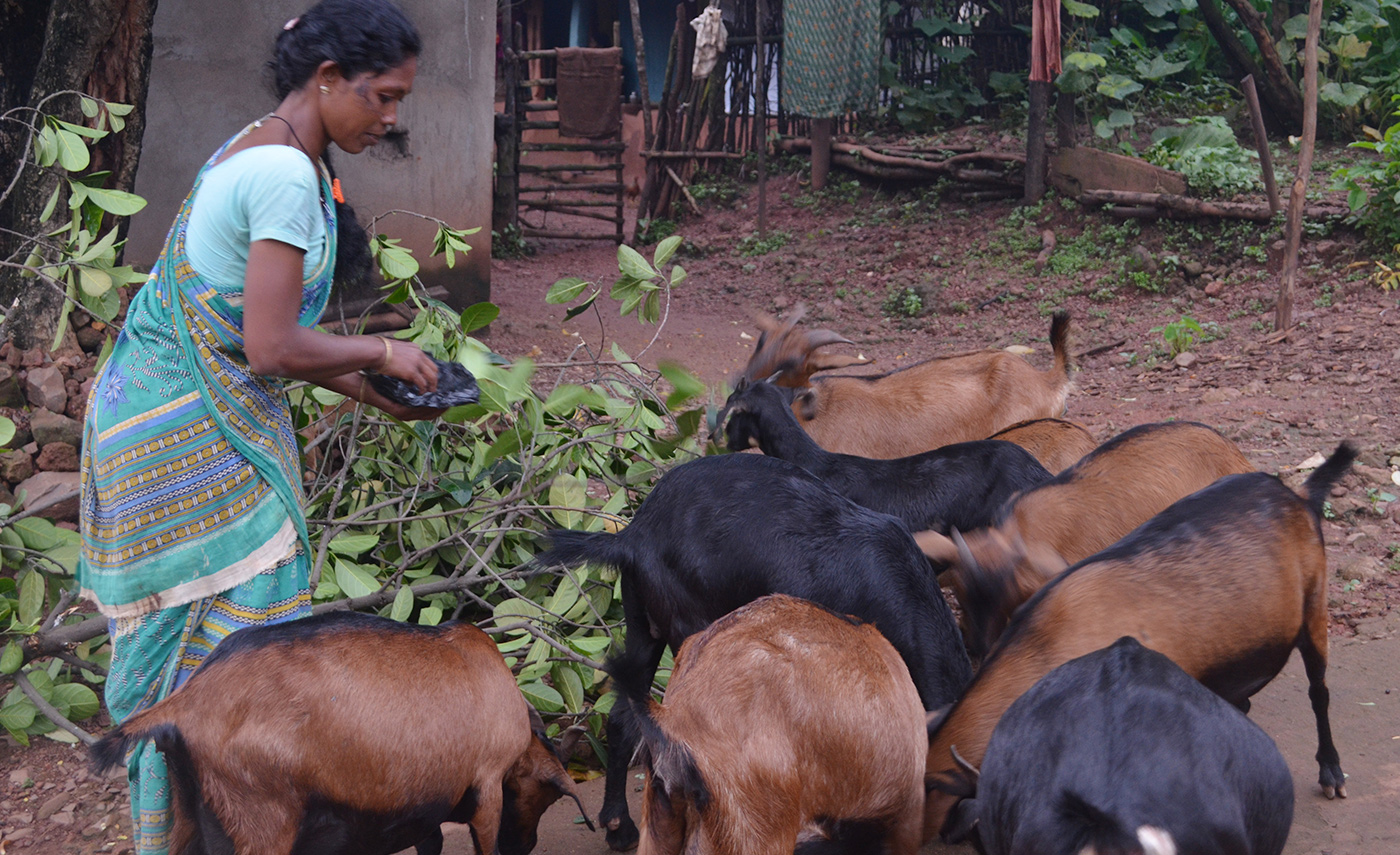
Tulodihi, where Parbati lives, is a tribal village of Odisha, just two kms from Banspal where the Gram Panchayat and the block head quarter is located. The 42-household village is surrounded by hills on all sides with a narrow road connecting it to the block, then to district head quarter Kendujhar and the rest of the world. Last year an all-weather road was constructed. This year Parbati and all her neighbours got electricity connections at their homes. Every monsoon Tulodihi’s lush green foliage, along with dark clouds hanging from the hills, enthralls every visitor. Small cropping patches add to the greenery with new paddy, maize and nizer crops. There is a primary school and a mini Anganwadi Centre in the village. The picture looks almost perfect for those people who live there. Almost. The irony is, Tulodihi’s beauty had been a complete contradiction to the quality of lives its people were leading.
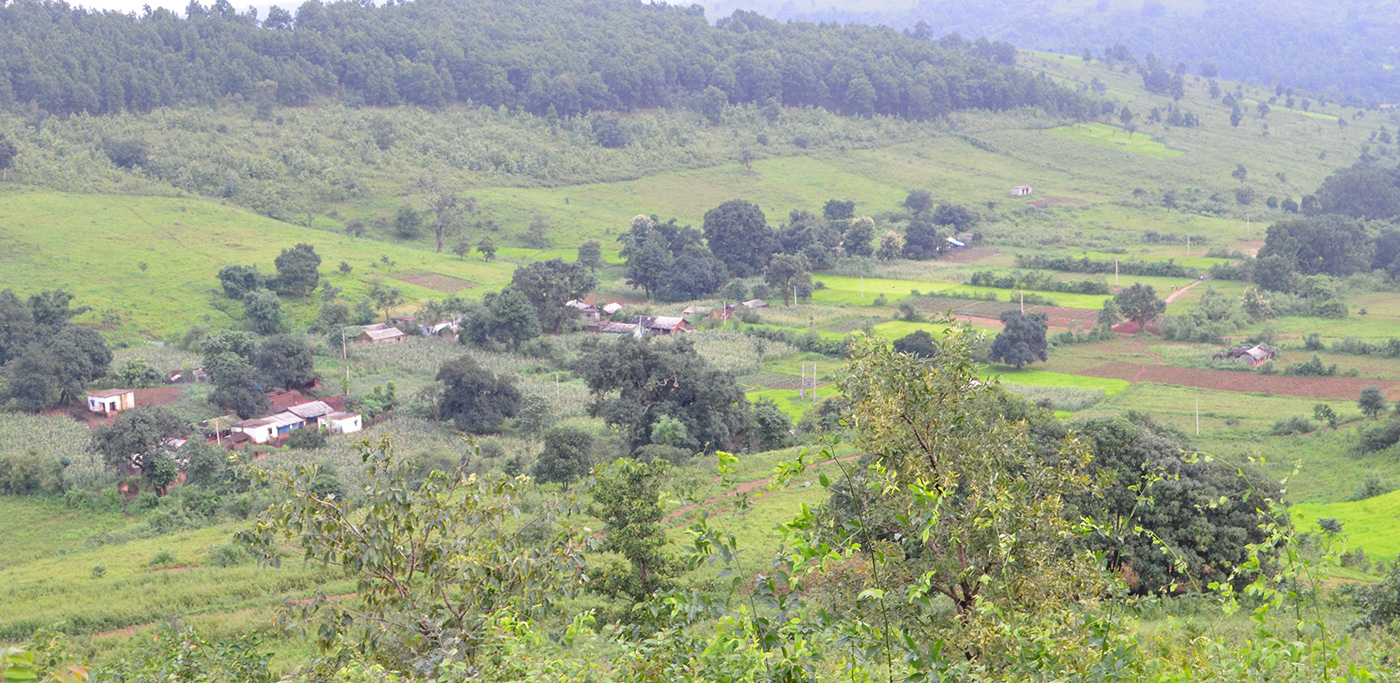
When PRADAN Suakati team (the then Keonjhar team) started working in the village in 2014 the villagers presented their hapless condition, they did not have enough food for the year. All, especially the women, were anemic. Those very crops which multiplied the village’s scenic beauty, meant only 3-4 months’ food for the village. Devoid of any irrigation facility a Rabi or a summer crop was never grown in the village. Men were migrating to distant places to work as wage laborers whereas Parbati, along with other women were toiling day and night to feed the children and old persons. They used to rear goats and indigenous poultry birds, but income from that was uncertain as most of the small ruminants used to get wiped out due to outbreak of Peste des Petits Ruminants (PPR) and Ranikhet disease every year. PRADAN teams, having demonstrated how goat rearing could help farmers earn handsome cash return through vaccination practices and good health care measures, in other Odisha villages, decided to engage with the community to address the issue of small ruminant mortality.
During the initial meetings, SHG members reminisced how the outbreak of PPR in 2012-13 reduced their herd of 250 goats to just 41. Bidyadhar Dehury, a local youth agreed to work as a master trainer for goat vaccination. He started grooming the community members on the need for goat sheds, shed cleaning, symptoms of various diseases and the preventive measures, feeding practices and controlled grazing.
“If I learn how to vaccinate the goats so many people could be helped! And yes, my goats will never die from diseases” she thought.
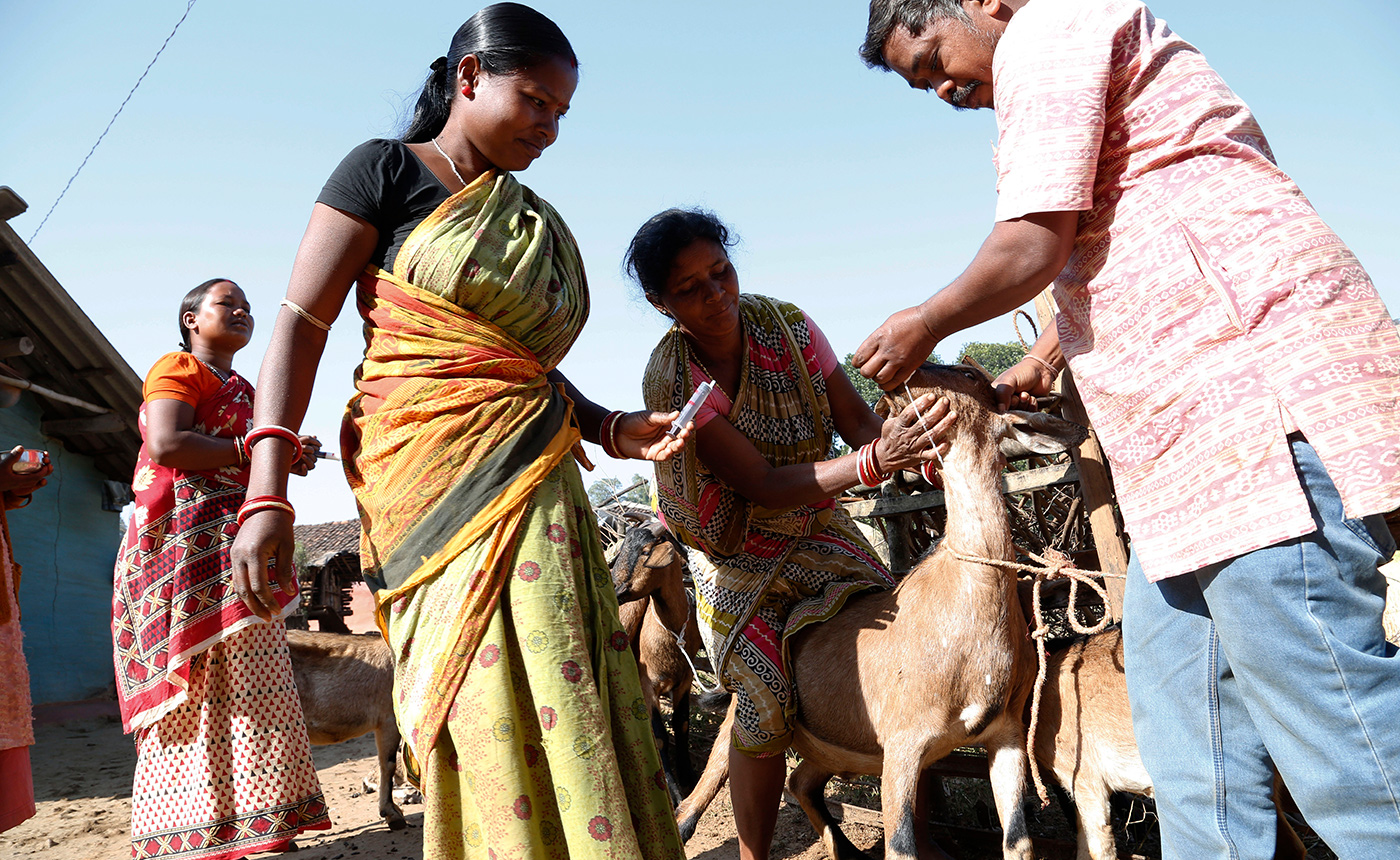
Parbati started assisting Bidyadhar in deworming and vaccination. Together, they covered the whole of Tulodihi. For the last five years vaccination and deworming cycles have been continuing. In fact, 31 rearing families constructed raised bed-cum-goat shed, to provide the goats with extra care and protection. From 2017 on an average the rearers started earning Rs 15, 000 a year. This year their herd size increased to 477. All this, even after selling 75 goats on an average, every year.
| 2014-15 | 2015-16 | 2016-17 | 2017-18 | 2018-19 | |
| Number of farmers | 15 | 25 | 26 | 36 | 35 |
| Goat herd size | 51 | 145 | 203 | 276 | 477 |
“We have fought hard. It was difficult to convince some rearers in the beginning, but as they saw less goats dying in cases of farmers who vaccinated their herds, all accepted the new practices. Five years back 80% of our goats used to die, now, not even 11% do. My neighbour Nirasha Katei earned Rs. 28,000 by selling five goats, and Muga Dehury earned Rs. 26,000 by selling four goats” claims Parbati.
“Dukhabandhu’s caring hands are no more with me, but I have saved my herd. My only solace is that I did my best to save Dukhabandhu. Thanks to my herd. Funding education costs for both my sons does not look very difficult anymore.”
